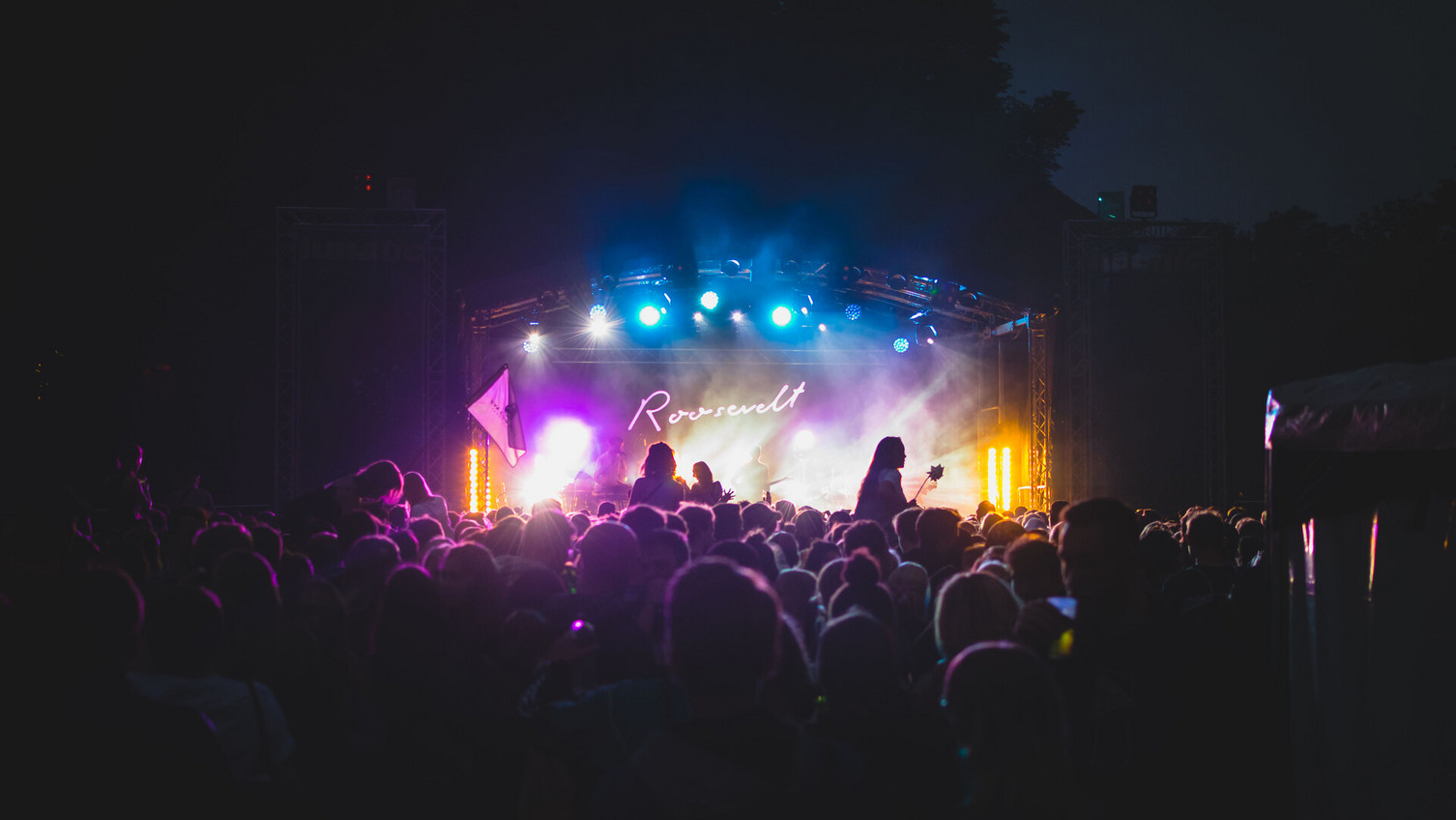Lunatic: Festival Vibes and Social Sustainability
2022-05-31 Making a difference is particularly important to the student organising team of this year's Lunatic Festival. From 3 to 4 June, the event will once again take place on the Leuphana campus. It will not only be about music, but also about art, social and ecological sustainability. Hanna Kunst and Hendrik Joachim from the organising team report.
"For me, a festival is a place where you discover things you hadn't thought of," says Hendrik. Stages scattered all over campus provide the "cool festival vibe, the walk from location to location." Hanna adds, "We feel our line-up is mega ourselves right now." They have every reason to be excited. In addition to musicians like Alice Phoebe-Lou or Bikini Beach, they have live podcast performances ("Fire and Bread"), joint artistic actions, vegan food trucks and much more to offer. The Lunatic differs from conventional festivals in two ways: through their values, laid down in a "Code of Conduct", which they discuss and implement again and again in a grassroots democratic way, and through their integration into the complementary studies at Leuphana. "Student self-organisation - that's something special," says Hanna happily: "When do you ever have the chance to organise a festival with 3,000 visitors in a university context? Well, that's just crazy."
The complementary studies accompany the Leuphana Bachelor and are the part of the timetable that all Leuphana Bachelor students go through together. The idea of transdisciplinarity and interdisciplinarity is thus set against a one-sidedness in terms of subject matter. The fact that the time requirements of the festival exceed those of a conventional seminar does not dampen the enthusiasm of the students. They are motivated to get involved in the structure based on the division of labour. Hanna has learned what's important in artist contracts and Hendrik adds: "You get so much on the side, almost without noticing it yourself." In the workflow, disciplinary boundaries dissolve because the concrete problems dealt with do not adhere to disciplinary boundaries either. In practice, for example, arts scientists can organise accounting just as much as business students can contribute to aesthetic questions. Hanna believes that many people have the impression that the Lunatic is a matter of the "Kuwi-Indi-UWI bubble" and urges all students to join in. "Basically, you don't know anymore who is BWL-LI and who is KUWI", says Hendrik.
The students' commitment is value-oriented. They want to get something going and do good in the process. It is important to the young culture managers that today's festival has more to offer than just a famous line-up. The invited artists must reflect the diversity of society. If the selection were based only on demand, marginalised art would inevitably be underrepresented. A line-up would work, but would not initiate change. That's why it was important for the team to address the issue of cultural appropriation, for example. Artists who elevate themselves above marginalised cultures or rip resistance symbols out of their context for entertainment purposes have no place in their line-up. During the festival, they also ensure that a professionally trained awareness team provides help in cases of border transgressions. At the red Tiny house (next to building 9) there will be a "safer space". There, discriminated and marginalised people in particular can expect peace and help. In addition to social sustainability, the project is also about ecological sustainability. For example, the famous Viva-Con-Agua bucket was invented at the Lunatic. Today, every festival-goer knows the blue buckets into which you throw deposit bottles for a good cause. In this way, the Lunatic has written itself into the sustainability history of northern German festivals.
On 3 June, you can join the students in rejoicing, dancing and doing at the unique, reflective and multifaceted Lunatic Festival on campus.

